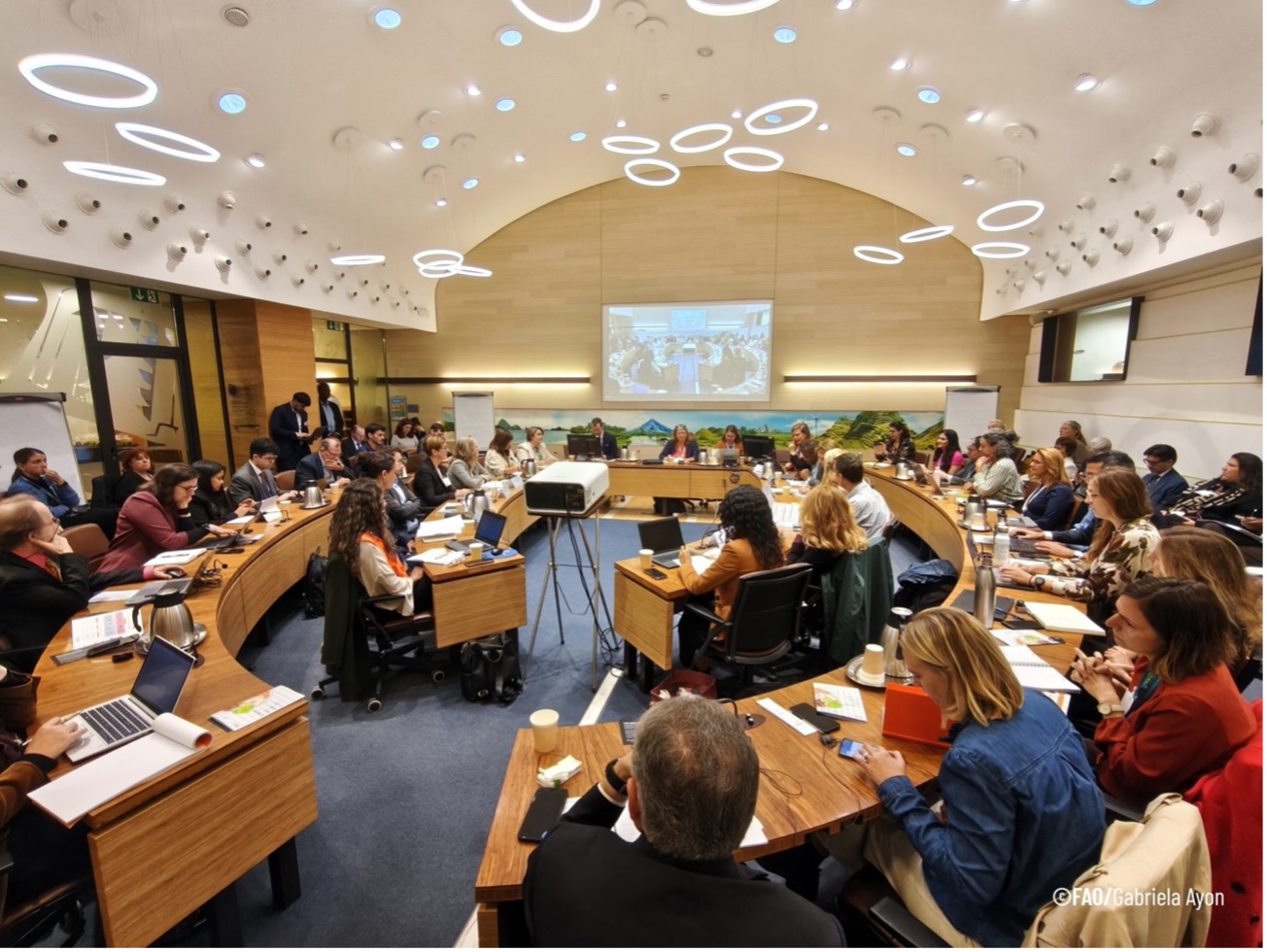
Stronger national commitments and multisectoral financing strategies were at the centre of the dialogue held on Wednesday (22) during the side event at the Committee on World Food Security (CFS) entitled ‘Investing in the future: building partnerships and strengthening financing for healthier school feeding programmes.’
The meeting was organised as part of the Committee’s 53rd Plenary Session, held in Rome from 20 to 24 October, and focused on sharing best practices in financing and collaboration to boost agri-food resilience and access to healthy and affordable diets for school-age children.
FAO Chief Economist and Regional Representative for Latin America and the Caribbean, Máximo Torero, drew attention to the funding gap that persists despite investments of nearly US$50 billion in 2022. ‘As fiscal pressures on governments intensify, there is a growing risk that school feeding programmes will not reach those who need them most. Although 84% of countries claim to have a specific annual budget for school feeding, only a third say that the resources available are sufficient to ensure adequate coverage and quality,’ he said.
At his side, Paola Barbieri, project analyst at the Brazilian Cooperation Agency, took stock of how “school feeding, over the last 20 years, has gained a strategic place on the Brazilian South-South Cooperation agenda (…) In this journey, we have counted on the valuable participation of FAO and WFP. Through these partnerships, we have already cooperated with around 80 countries in Africa, Asia, Latin America and the Caribbean.”
The event was jointly organised by the World Food Programme (WFP) and its Centre of Excellence against Hunger in Brazil, the Food and Agriculture Organisation of the United Nations (FAO), the Swedish Committee for FAO, the School Food Coalition and the Sustainable School Food Network (RAES), the Government of Brazil through the Brazilian Cooperation Agency (ABC) and the National Fund for Education Development (FNDE), the Government of Kenya through the Department of State for Agriculture, the Government of Ukraine through the Ministry of Education and Science, the Swedish Food Agency and a wide range of partners from governments, civil society and the private sector.
For Maria Giulia Senesi, Programme Officer at the WFP Centre of Excellence against Hunger in Brazil, debate is necessary for school feeding programmes around the world to reach their full potential. ‘Thinking about sustainable financing solutions, adapted to national contexts at each stage of programme expansion, is essential – and this session demonstrated how different countries are putting this into practice,’ she says.
The virtuous circle of school feeding programmes: country experiences
On behalf of Brazil’s National School Feeding Programme (PNAE), Karine Santos highlighted the country’s pioneering experience in the Latin American and Caribbean region. ‘The programme respects the food culture and nutritional and health needs of students, integrates Food and Nutrition Education (FNE) into the school curriculum and encourages the purchase of food from family farms, contributing to sustainable development and equity in access to food,’ she said.
Currently, the PNAE serves approximately 39 million students in 146,000 schools and was recently updated to further reduce ultra-processed foods and boost public purchases from family farms, ensuring that 50% of the value of purchases goes to women-led businesses.
Kenya, Ukraine and Sweden also shared information about their respective school feeding programmes and funding models, but concluded that there is still much to be done. ‘The full potential of what school meals could offer has not yet been realised,’ said Britta Ekman, unit manager at the Swedish Food Agency.
Multilateral approach to cooperation and financing
The event gave a voice to UN agencies, multilateral organisations, civil society and the private sector as key players in ensuring innovative approaches to the sustainable financing of school feeding programmes. Among them was María José Rojas, head of the Secretariat of the School Food Coalition, based at the UN World Food Programme (WFP), who said that “this is exactly the kind of dialogue that demonstrates how the School Food Coalition works – a government-led effort whose success depends on governments, supported by a network of networks that mobilises civil society, UN agencies and other partners, such as the Global Alliance Against Hunger and Poverty, to advance the school meals agenda.”




